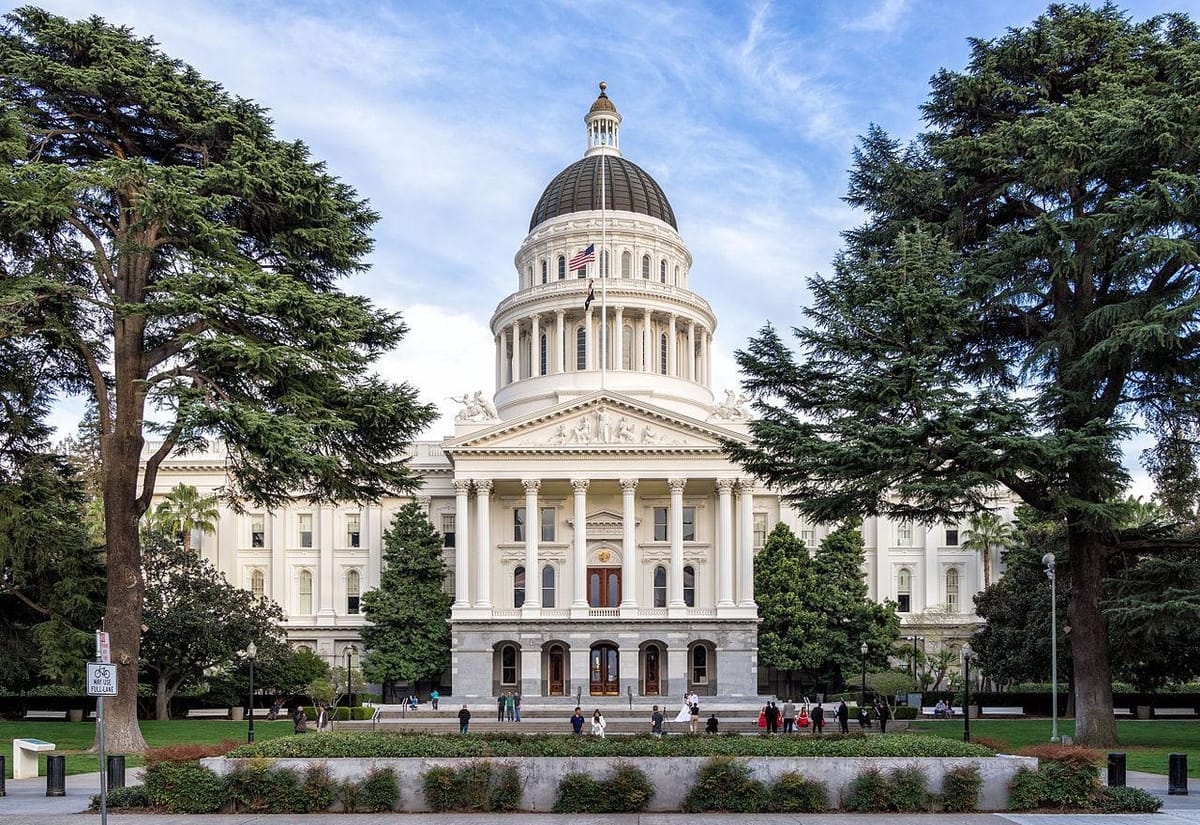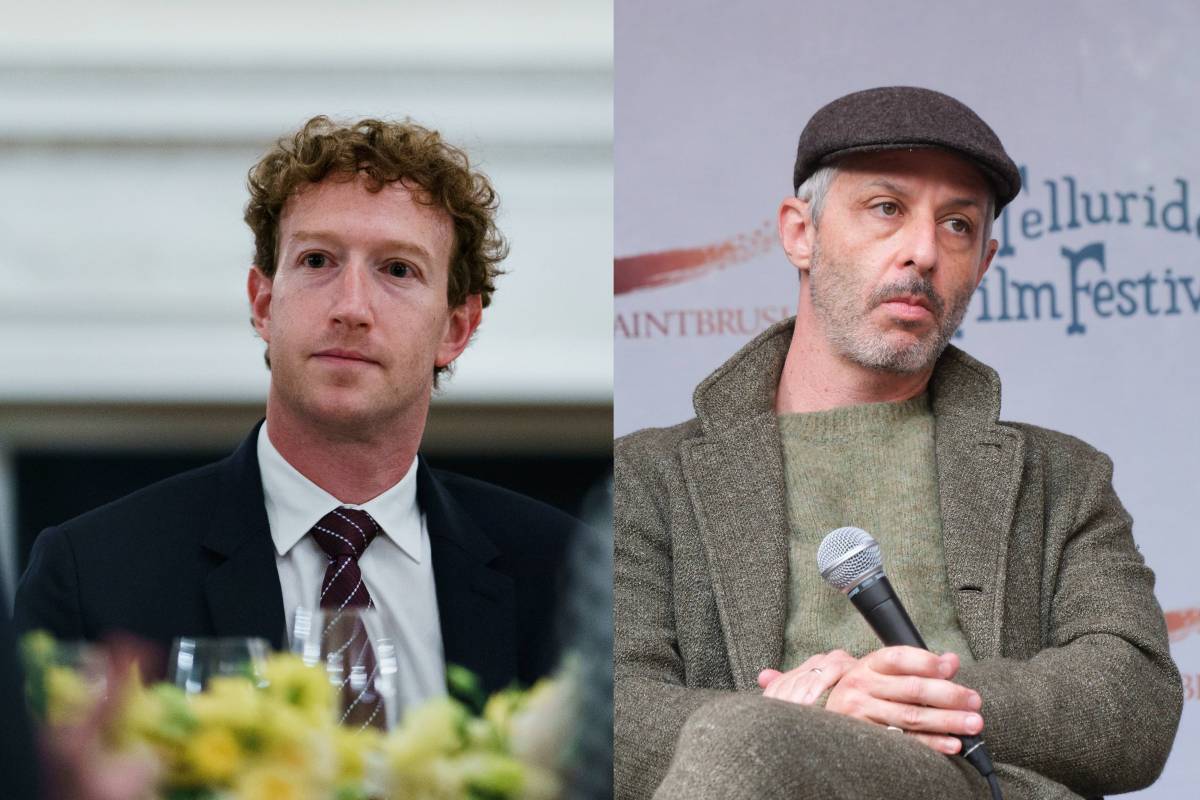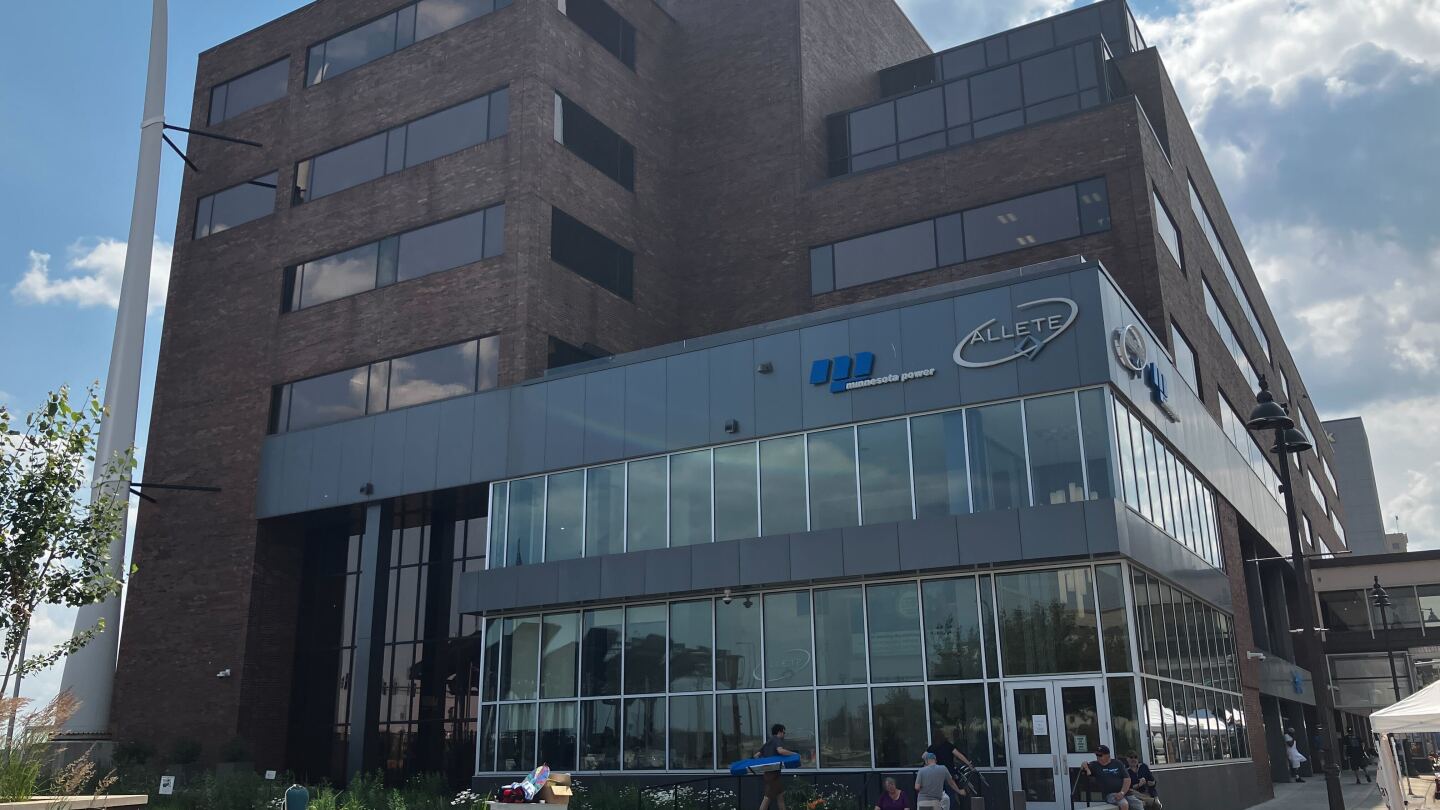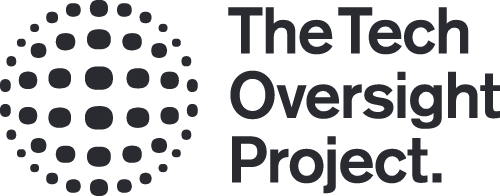Countdown in Sacramento, Big Tech’s Super PAC Surge
This week in The Dispatch we’re covering the fight to pass California’s landmark kids’ AI safety bill, the Big Tech PAC money flooding politics, and Amazon’s $2.5B payout to dodge accountability.

Welcome back to The Dispatch from The Tech Oversight Project, your weekly updates on all things tech accountability. Follow us on Twitter at @Tech_Oversight and @techoversight.bsky.social on Bluesky.

🏆 GOLD STANDARD FOR AI SAFETY: Yesterday, California Governor Gavin Newsom signed SB 53 into law, a landmark AI accountability bill that survived fierce opposition from Big Tech lobbyists. It's a major step toward holding Big Tech accountable on AI and protecting whistleblowers when something goes wrong. With this victory secured, attention shifts to AB 1064 — the LEAD for Kids Act — now on Newsom’s desk. Read our full statement here.

⏳ COUNTDOWN IN SACRAMENTO: With days left for bill signings, Governor Gavin Newsom faces a choice: sign AB 1064 (LEAD for Kids Act) and make chatbots safer for kids — or reward an industry campaign built on intense lobbying, proxy groups, and late-night rewrites behind closed doors.
New revelations are pouring in about the heated fight over AB 1064, which triggered an industry blitz in Sacramento — registered lobbyists, ad buys, new super PACs – all designed to muddy who’s speaking for whom. New vehicles like American Innovators Network (backed by a16z) ran micro-targeted ads to spread false concerns. The money keeps scaling: Meta just launched another super PAC (in addition to the money Mark ran through his California-focused PAC) with “tens of millions” pledged to shape state tech policy — and meant explicitly to target bills like these.
- American Innovators Network ran 90+ California-targeted digital ads over the past three months, spending $50k+; TechNet added a separate ad flight expressly opposing AB 1064.
- Chamber of Progress and TechNet each reported ~$200k in first-half Sacramento lobbying; CCIA reported $60k; American Innovators Network $40k. Third-quarter filings covering the peak push aren’t public yet.
- Google’s broader playbook in California: covertly mobilizing small businesses via the Connected Commerce Council to weaken privacy guardrails, and ensure a delay of enforcement to 2027 and liability cushions — classic “keep the title, gut the substance.”
Parents, doctors, advocates, and watchdogs have backed AB 1064 through an unprecedented influence campaign — signing it would put California on the side of families rather than the spending that tried to bury the bill.
“It’s clear that they have bottomless resources, but what we have is our voices, which are much, much louder and much, much stronger than they think.” – Sacha Haworth, Executive Director, The Tech Oversight Project
Meanwhile, Big Tech is asking for a veto of AB 1064 — after years of profiting off children’s attention, they want another escape hatch.
The countdown is on. Newsom can choose kids over Big Tech and deliver the country’s first real guardrails on child-facing AI chatbots — or hand the industry another victory it spent millions to buy.

💸 BIG TECH: UNDERMINING THE WILL OF THE PEOPLE: Crypto’s Fairshake PAC was the prototype in 2024: a $260 million blunt instrument that flooded the airwaves and pushed out lawmakers protecting everyday people from losing their savings to crypto scams. Their multi millions subverted voters by pushing ads that never even once mentioned “crypto” because their agenda is a political loser. And now, Big Tech is hoping to turn the same trick.
In addition to a16z and OpenAI’s dark money group, Mark Zuckerberg is flying solo. He first carved out Mobilizing Economic Transformation Across California, a super PAC that functions like his personal campaign ATM. Instead of spending his own billions, he’s using Meta’s checkbook to pour big money into California races. Or, as Rick Hasen put it: spending the company’s money on his political choices.
Not content with one PAC, Mark quickly launched another — the American Technology Excellence Project — to fight AI laws nationwide. On top of Meta’s record $13.8M in lobbying in six months, with 86 lobbyists — nearly one for every six members of Congress.
“How many super PACs does one industry need?” — Sacha Haworth, Executive Director, The Tech Oversight Project.
To be fair, Meta isn’t alone:
- OpenAI, A16Z, and other Big Tech AI executives seeded Leading the Future with at least $100M from Greg and Anna Brockman, Andreessen Horowitz, Perplexity, Ron Conway, and Joe Lonsdale.
- Google, Amazon, OpenAI, and Apple are funding trade groups that litigate and run ad campaigns in their name.
- Meta, Google, and Nvidia collectively spent over $36 million on influence operations in the first half of 2025 — more than $320,000 per day.
- AI lobbying overall has exploded: Public Citizen tracked 3,410 lobbyist engagements on AI in 2023 — a 120% jump in a single year.
Why all this time, money, and energy? State AND federal preemption. No longer content with just trying to block state regulations (ICYMI: Congress killed Big Tech’s 10-year moratorium on state AI laws in a 99–1 vote), Big Tech and Senator Ted Cruz are back with the SANDBOX Act — a rebranded Big Tech giveaway letting the Trump White House waive any federal law or regulation it deems inconvenient for Big Tech monopolies.
The money is flowing because Governors, Attorneys General, and state lawmakers on both sides of the aisle are beginning to write the AI rules of the road, and Congress, in a lopsided and bipartisan effort, rebuked Big Tech publicly with the AI moratorium. Big Tech’s goal is zero regulation – at any level of government. They won’t stop until that is achieved.

🔒 AMAZON’S $2.5B CANCELLATION FEE: The FTC has settled its Prime case against Amazon for $2.5 billion, just as a Seattle jury was set to hear how the company trapped millions in subscriptions they couldn’t escape. A $2.5 billion fine is trivial for Amazon, valued at over $2.35 trillion. Instead of a public trial, Amazon and its executives can pay their way out and move on.
This wasn’t a simple game of bait-and-switch. Internally dubbed the “Iliad Flow,” Prime’s cancellation maze was deliberately engineered into a 15-option slog designed to wear people down. Pop-ups shamed users for leaving (“No thanks, I don’t want fast, FREE delivery”), links steered them back to shopping, and metrics tied the design to fewer cancellations. That’s the essence of dark patterns: manipulative design built to manufacture outcomes people wouldn’t freely choose.
Dark patterns are one example of the connective tissue between consumer harm and monopoly power. When one dominant platform normalizes deception, others copy it.
The FTC also uncovered how Amazon worked to cover its tracks. It hid troves of internal documents under bogus privilege claims, then withdrew 92% of those claims only after a court forced re-review. One note even crowned Jeff Bezos the “chief dark arts officer” of subscription growth.
As former FTC Chair Lina Khan said: “A $2.5 billion fine is a drop in the bucket for Amazon and, no doubt, a big relief for the executives who knowingly harmed their customers.”
In 2027, the Commission’s broader monopoly suit alleging Amazon locks in sellers and punishes discounting across the web, will again test whether the law applies to Amazon’s executives — or whether they can keep buying their way out of accountability.

🪩 GOOGLE BUYS TRUMP A DANCE FLOOR: Trump’s YouTube “censorship” lawsuit never stood a chance on the merits, but Google yesterday agreed to pay $24.5 million — and filed to dismiss the case later that day. Trump’s $22 million share is earmarked for a Mar-a-Lago-style ballroom in the White House. Coincidentally, Google’s settlement comes right as the DOJ is arguing in court about breaking up the Big Tech monopoly’s adtech business and potentially challenging a judge’s ruling in the Search antitrust case — making this payment look more like a bribe than a White House edition of the Property Brothers.
🌫️ THE DATA CENTER OLIGOPOLY: The backbone of AI is acres of data centers running millions of servers and drawing power and water from cities big and small. The price tag and utility hookups are so steep that only a few firms can build at scale, giving them leverage over the infrastructure and the future of the tech industry.
By the end of 2024, the U.S. had about 1,240 data centers built or approved, according to Business Insider’s permit-based census. Amazon alone accounts for roughly 120 facilities, Microsoft about 50, while Google and Meta each report 24 U.S. campuses. Together, those four firms operate hundreds of sites between them — a footprint large enough to shape energy grids, labor markets, and the AI economy itself, while thousands of smaller operators fight over the margins.
Asad Ramzanali, a former White House tech advisor, believes the government needs to step in to regulate data centers as it has done for other business sectors. Ramzanali said: “Big Tech’s grip on this market is not only bad for competition but risky for national security.”
In his new blueprint, Ramzanali urges Congress to treat this sector like critical infrastructure — require structural separation of cloud providers from their parent companies, guarantee real data portability, and impose “know-your-customer” rules to limit foreign adversary access.
“You’re basically creating like a single point of failure,” said Evan Swarztrauber of the Foundation for American Innovation. That level of concentration doesn’t just entrench monopoly power — it turns the core of the AI economy into a national security liability.












